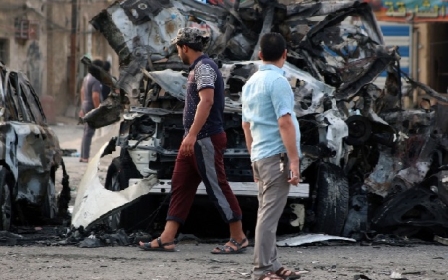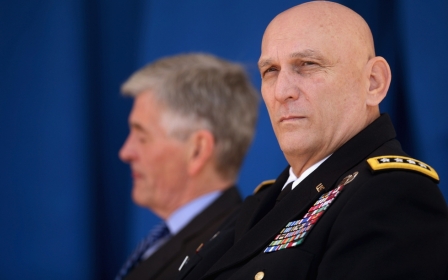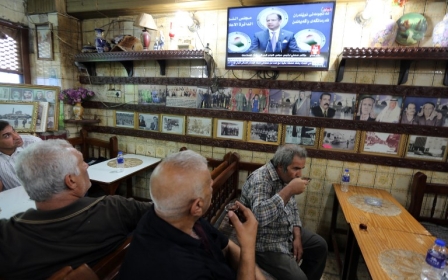Truck bomb kills almost 60 in Baghdad market

A truck bomb ripped through a market in an area of north Baghdad on Thursday, killing at least 59 people, a security officials told the BBC.
According to the officials, 100 other people were also injured in the explosion, the deadliest to hit the Iraqi capital in months.
The early morning blast in Sadr City, a predominantly Shia neighbourhood, was later claimed by the Islamic State group.
The blast hit the market at around 6:00am (0300 GMT), peak time for shops buying vegetables for the day. The bombing devastated the market, ripping through buildings, killing horses used to transport vegetables, burning vehicles and leaving large amounts of produce scattered on the ground.
The blast, which was likely aimed at undermining confidence in the government and stoking sectarian tensions, came after the outgoing US army chief warned that reconciliation in Iraq is becoming increasingly difficult and that the country may ultimately have to be partitioned.
General Raymond Odierno, who served as the top US commander in Iraq from 2008 to 2010, said Wednesday that the country may ultimately have to be divided up.
Asked if he saw any possibility of reconciliation between Iraqi Sunnis and Shias, Odierno said that "it's becoming more difficult by the day" and pointed to a future in which "Iraq might not look like it did in the past".
Bombings such as the Sadr City attack are a significant source of tension in Iraq and have worsened the country's sectarian divide.
The Iraqi army, which the United States spent billions of dollars to train and equip, performed dismally in the early days of the IS offensive which began last summer after the group seizes vast swathes of Iraq in a lightning offensive.
Baghdad's forces have since regained ground with the backing from a US-led coalition and Iran, but much of the country's west remains outside government control.
Even before the IS offensive, bombings targeting civilians in Iraq were a major threat, killing hundreds of people per month.
New MEE newsletter: Jerusalem Dispatch
Sign up to get the latest insights and analysis on Israel-Palestine, alongside Turkey Unpacked and other MEE newsletters
Middle East Eye delivers independent and unrivalled coverage and analysis of the Middle East, North Africa and beyond. To learn more about republishing this content and the associated fees, please fill out this form. More about MEE can be found here.




